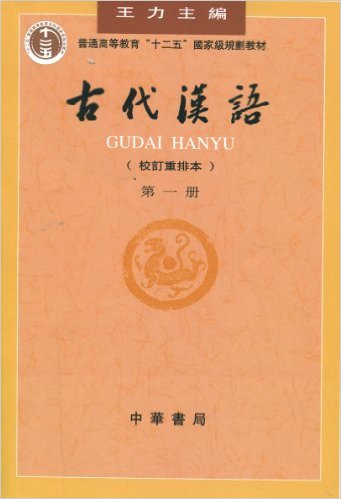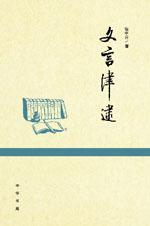I have a very strong interest in classical Chinese (文言文), but I am unable to find any ressources for learning it that don't assume Chinese is your mother language. Can anybody give me some pointers?
-
Searched a bit and also did not find anything valuable. As I can recall, classical Chinese is generally taught in high school using case-study. That is, to learn from famous articles, and teachers will do the explanation. While learning it, there are really A LOT exceptions to remember as I can recall.– FlakeCommented Dec 16, 2011 at 21:27
-
I've heard people saying the Confucius Institute in some countries has classical Chinese classes for people who's mother language is not Chinese. Maybe you could contact one of the institutes for more information. I don't think there are any good online learning resources.– Bruce LiCommented Dec 17, 2011 at 15:14
6 Answers
These two books have been recommended from another site (I haven't read these myself):
A New Practical Primer of Literary Chinese (Harvard East Asian Monographs) by Paul F. Rouzer (2007)
Aside from learning yourself, another option is to find a Chinese person who did well in this subject to teach you or do language exchange.
For the sake of having this available for people who stumble upon this resource question:
A book has been recently published (Feb 2019) that assumes no prior knowledge of Modern Chinese: Classical Chinese for Everyone: A Guide for Absolute Beginners
I find it an interesting and gentle introduction. I do already know some Modern Chinese, so completely new learners may not find it as gentle, but it is very geared towards new learners and includes very basic information (such as what Chinese characters even are) in the introductory chapter. The book quickly enters reading actual classical texts after this, but does so in a gentle manner, explaining the characters and grammar along the way, with some philosophical commentary at the same time (relevant to the text, of course).
I recommend you one teaching material "古代汉语".

This is the basic and common classical Chinese book. It introduced the history of classical Chinese and provided so many useful materials to learn classical Chinese. Chinese Poetry, like classical Chinese, also deeply embodies the basic spirit of Chinese culture. Poetry is the art of language and is China’s national spirit. If you also interested in Chinese poetry, I can recommend top 5 Chinese poems to you.
-
Isn’t this book from 1960s? You’d think views on Classical Chinese have moved on since then. Commented Dec 3, 2017 at 11:13
-
This book is even harder for Chinese people. I did not think it is useful for beginners. Commented Dec 5, 2021 at 11:24
-
This is a series of books. I found them extremely helpful, but indeed also pretty hard. They may be best to use if you first study another beginner's course to get a bit of a basic vocabulary and background. Also require at least mid-level to advanced mastery of modern Chinese. Commented Sep 9 at 12:40
the internet archive has several old books for learning 文言文, or wenli (文理):
elements of chinese grammar 中國言法﹒by marshman j d d; printed in 1814
this one talked about phonology, and grammar; a good start.
introduction to literary chinese﹒by j brandt
i guess this one was printed in ~1927, articles in literary & colloquial chinese, with english translation and explanation.
chinesische grammatik 漢文經緯﹒by georg von der gabelentz; printed in 1881, in leipzig
this one was in german. judging from the chinese characters displayed, 2/3 of it was about 虛字; an important aspect of 文言文.
a guide to wenli styles and chinese ideals﹒by evan morgan; printed in 1912, in shanghai
this one is full of short literary chinese articles, with english translation, occasionally explained some critical mots in text.
lessons in elementary wenli 華文釋義﹒by f w baller; printed in 1912, in shanghai
again, articles in "literary chinese" (imo, not pure enough) with english translation.
these're resources as far as i found, one may download the files "freely"; errrr. . . provided you're not in ***** 😼
One book that has been extremely helpful to me is
- Edwin G. Pulleyblank, Outline of Classical Chinese Grammar (1995, 2003) (ISBN 0-7748-0541-2)
This book gives a concise but complete overview of the classical grammar with clear sample sentences. The time period for Classical Chinese is roughly the age of Confucius (6th century BCE) until the Qin unification (221 BCE). Many samples are taken from the book of Mengzi which is known for its simple, elegant and clear style.
The book gives a high-level description of the grammar. But it also gives exhaustive listings of -- for instance -- all the different question particles or the different ways of negation, the different coverbs, different ways to express time, aspect and mood, and a lot more. It pays special attention to syntactical features that are unknown or not as well known in other languages (such as coverbs or pivot constructions).
Note: The price of even a second hand paperback copy on Amazon is ridiculously high ($80). But if you look around on other sites, you may find copies with a much more reasonable price.
